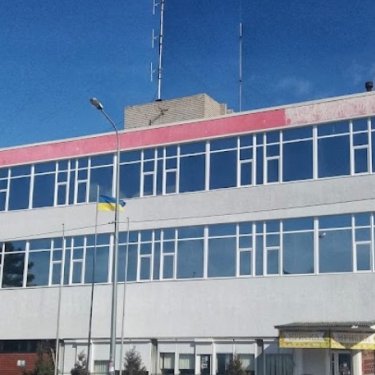Russians use abduction, hostage-taking to threaten Ukrainian journalists in occupied zones

Ever since the start of the war in Ukraine, the Russian armed forces have been bullying and threatening journalists and local media in the conquered territories to prevent them reporting the facts and get them to spread Kremlin propaganda. Reporters Without Borders (RSF) condemns these acts of intimidation, which include abduction, and calls on the Russian authorities to stop harassing Ukrainian journalists.
What with death threats, kidnapping and enforced disappearance, the Russian soldiers have been getting more and more inventive in their attempts to make Ukrainian journalists cooperate as the war in Ukraine enters its second month. Their latest misdeed was to take journalist Svitlana Zalizetska’s 75-year-old father hostage in the southeastern city of Melitopol on 23 March. As a condition for his release, they say that Zalizetska – the editor of the city’s main newspaper, Golovna Gazeta Melitopola, and the RIA-Melitopol news website – must come to the Russian army. She fears the city’s occupiers will demand her collaboration or the shutdown of her news site.
This is not the first time Russian soldiers have taken a journalist or relative hostage. On 8 March in Berdiansk, a coastal city 120 km east of Melitopol, Russian soldiers stormed a building housing radio Novosti Berdiansk, the newspaper Berdianskiye Vedomosti and a local TV channel Youg TV. They took control of the radio station and TV channel within minutes, and then the Novosti Berdiansk Telegram channel and Instagram account. And they took hostage around 50 employees of these media outlets who were present.
“They proposed to us that we should cooperate in exchange for a salary and food, but no one accepted,” one of the journalists told RSF on condition of anonymity. “For more than five hours they threatened us with their weapons, they tried to explain to us why they were attacking our country, they said that the war was not against civilians but against the Nazis in Ukraine, and that the Russians were there to protect us.”
This journalist and one of his colleagues were badly beaten by the soldiers, who threatened to kill them. He is now at home, terrified about the possibility of reprisals. Ever since this hostage-taking, Novosti Berdiansk has been broadcasting Kremlin propaganda calling on Ukrainians to lay down their arms. Access to its website, one of the most visited in the region before the start of the war, is blocked.
“By taking hostages, after bombing TV towers and shooting at cars marked ‘Press,’ the Russian authorities are demonstrating their determination to censor all reporting that contradicts their military propaganda,” said Jeanne Cavelier, the head of RSF’s Eastern Europe and Central Asia desk. “We strongly condemn these acts of intimidation and call on the Russian authorities to stop targeting journalists. They will have to answer for their actions before international courts.”
Abduction, forced statement
When the Russian army doesn’t take journalists hostage, it kidnaps them. Viktoria Roshchina, a Hromadske Radio journalist who disappeared in Berdiansk on 12 March, was freed ten days later after being forced to record a video saying the Russian soldiers “saved her life” and that she was “treated well.” Oleg Baturin, a journalist kidnapped by Russian soldiers in Kakhovka (in the Kherson region), was held and tortured for eight days and then released. A Radio France fixer who does not want to be identified suffered a similar fate after being abducted near Kyiv.
Journalists in the occupied territories sometimes receive “visits” from Russian soldiers and are temporarily detained. Melitopolskie Vedomosti reporters Yulia Olkhovskaia, Liubov Chaika and Mikhailo Kumok and editor Evgenia Borian were arrested at their homes in Melitopol on 21 March and were taken by force to an unknown destination before being released a few hours later.
The Russian military have threatened to kill Irina Stariselets, a correspondent for the national news agency Ukrinform in the Kherson region who is actively involved in covering the war. “The Russians keep calling me to explain what they are going to do to me,” she said. Pro-Russian activists are sometimes responsible for the threats. The mobile phone number, address and passport data of Anastasia Volkova, a journalist for the LOT TV channel in the Lugansk region, were posted online by pro-Russian activists at the start of March along with calls for her to be punished for criticising the Kremlin.
Since the beginning of the war, local media are being prevented from operating - completely or temporarily - in at least six cities now occupied or under pressure by the Russian armed forces like Melitopol, Vinnytsia and Kherson, according to the Institute of Mass Information (IMI), RSF’s local partner, which says in a report published yesterday that a total of 70 local media outlets have been forced to stop working.
Where they have not yet been forced to stop working, media outlets such as Pushkinskaya, Media-Inform, Reporter, Third Digital, Dumskaya, 048, Volnorez and All.news have been receiving anonymous letters calling on them to “abandon their anti-Russian activities” in order to have “a chance of being saved.” The Russian armed forces have also bombarded ten radio and TV towers since the start of the war – attacks that constitute a war crime and are the subject of two complaints that RSF has filed with the International Criminal Court’s chief prosecutor. At the Press Freedom Centre opened in Lviv, RSF is also providing support to Ukrainian journalists who have sought refuge in the west of the country.
Since the start of the war, five journalists have been killed in the course of their work and nine have been wounded by gunfire or as a result of air or artillery bombardment. Ukraine is ranked 97th out of 180 countries in RSF's 2021 World Press Freedom Index, while Russia is ranked 150th.



